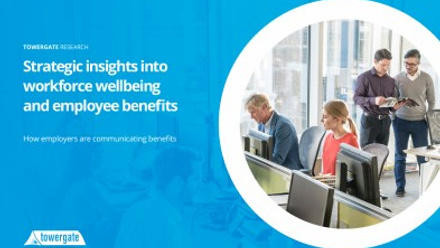Q&A: Harj Kilshaw of global legal business DWF on being a family-friendly employer

Q. Why is being a family-friendly employer important to DWF?
A. “Attracting and retaining a diverse and inclusive workforce is a priority business issue for us, and progressing a family-friendly culture is an important part of helping us do that,” explains Kilshaw.
“Making flexible working the rule, not the exception, is incredibly important to us as it enables our colleagues to combine their family responsibilities with a career at DWF. This consistent approach to agile and flexible working has also helped our business to adapt easily during the pandemic too."
Working Families’ top employers are measured against four key areas: integration to organisational strategy and culture; policy; consistent practice; and evidence and statistics.
Q. How have you integrated your family-working practices into your wider organisational strategy and culture?
A. Kilshaw comments: “Everyone can access family-friendly documents and information via a hub on our intranet to help explain what provisions are in place, and there is also lots of support for line managers too.
“We're also very explicit about our desire to create a high-performing, flexible/family-friendly workplace in our organisational values, recruitment and marketing campaigns. That includes embedding a culture which is focused on results and performance, not attendance or presenteeism. Flexible working is the standard way of working at DWF, and our people can rely on the business at every life stage to support their work-life balance, without having to ask.
“Our senior leadership team is also proactive in sponsoring family-friendly/flexible working. For instance, Mark Qualter, CEO of DWF's Managed Services, is our executive sponsor for flexible and agile working. Qualter provides visible leadership to create an environment where are our people are encouraged to work differently and smarter.”
Q. What policies and/or employee benefits do you have in place to support working families?
A. “We have range of policies to help support our working families and a host of benefits for all our people,” says Kilshaw.
“This includes enhanced maternity/paternity pay, enhanced adoption leave provision for surrogate parents, grandparents or kinship carers, parental leave available to foster carers, paid time off for people undergoing fertility treatment and a host of advice and support materials available covering adoption, IVF, surrogacy and fostering. We also have resources and support for parents of children with a disability.
“We have a specific carers’ leave policy and as part of that, we offer half a day paid time off for dependent care, as well as transition support for mothers, fathers, carers and their managers.
“We support our people’s wellbeing and in a bid to prevent burnout, we have mental health first aiders within the business and offer our people access to a new digital GP service.
Q. How do you ensure consistency of support for working parents across the organisation?
A. “To ensure consistency of support, we use our internal communications channels to communicate regularly about flexibility and work-life balance, including from the senior team, on a range of topics such as working from home with a family, menopause support and flexible and agile working during COVID-19.
“Yammer is a useful social tool where our colleagues can join groups, discuss issues and share knowledge, staying connected to what’s happening across the business and what support is available.
“We also provide a multitude of information on our intranet, for example we have a menopause hub to provide access to support groups, workshops, resources and toolkits; and we have an LGBT hub with information on same sex adoption/parenting.
“In recent months we have had a focus on mental health and wellbeing, in light of the increase in home working, to ensure our colleagues are aware of the support available, ensuring a healthy work-life balance,” adds Kilshaw.
Q. What has been the impact of your family-friendly policies on employees?
A. “Our approach to family-friendly policies means that a significant amount of our staff can work from home full-time or on an adhoc basis as and when they need to.
“The results of our employee satisfaction survey provide an extremely favourable percentage of our people who are satisfied with the working life and culture of our business,” explains Kilshaw.
Q. How has coronavirus impacted your family-friendly approach? Have you had to put in place special measures to provide extra support?
A. “When the pandemic hit the UK in late March 2020, we had to adapt quickly to ensure our people could work remotely without disruption to the business. Luckily, as an already-agile business, we were perfectly placed to deliver this effectively and efficiently.
"Currently, an extremely high number of our colleagues work from home, with flexible start/finish times and many work flexibly in different ways, including working part-time,” explains Kilshaw.
“Working parent groups have been created in offices where colleagues find them valuable and meetings and distribution lists were set up to exchange ideas.
“We openly acknowledged that caring for children and loved ones was something colleagues would need to focus on and that we would be flexible in relation to this so nobody felt uncomfortable raising it with their line manager. Colleagues who requested unpaid leave had their request approved if it was on the basis of childcare or other caring responsibilities.”
Q. Looking ahead, do you have any further plans for your family-friendly policies?
A. “We’re constantly looking to increase our support for working families and are due to launch our well-being strategy. We recognise the need to support our people further and review our policies on a regular basis,” concludes Kilshaw.






